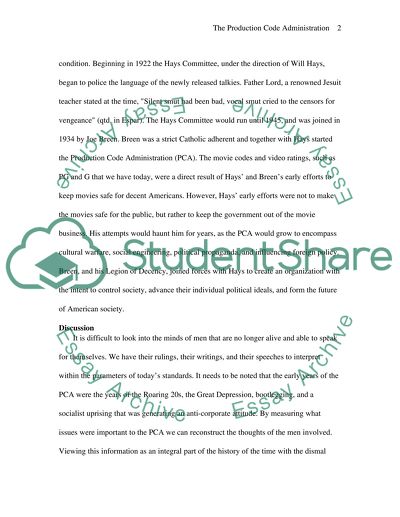Cite this document
(“The production code administration: setting the tone for movies in Essay”, n.d.)
The production code administration: setting the tone for movies in Essay. Retrieved from https://studentshare.org/visual-arts-film-studies/1518154-the-production-code-administration-setting-the-tone-for-movies-in-america
The production code administration: setting the tone for movies in Essay. Retrieved from https://studentshare.org/visual-arts-film-studies/1518154-the-production-code-administration-setting-the-tone-for-movies-in-america
(The Production Code Administration: Setting the Tone for Movies in Essay)
The Production Code Administration: Setting the Tone for Movies in Essay. https://studentshare.org/visual-arts-film-studies/1518154-the-production-code-administration-setting-the-tone-for-movies-in-america.
The Production Code Administration: Setting the Tone for Movies in Essay. https://studentshare.org/visual-arts-film-studies/1518154-the-production-code-administration-setting-the-tone-for-movies-in-america.
“The Production Code Administration: Setting the Tone for Movies in Essay”, n.d. https://studentshare.org/visual-arts-film-studies/1518154-the-production-code-administration-setting-the-tone-for-movies-in-america.


